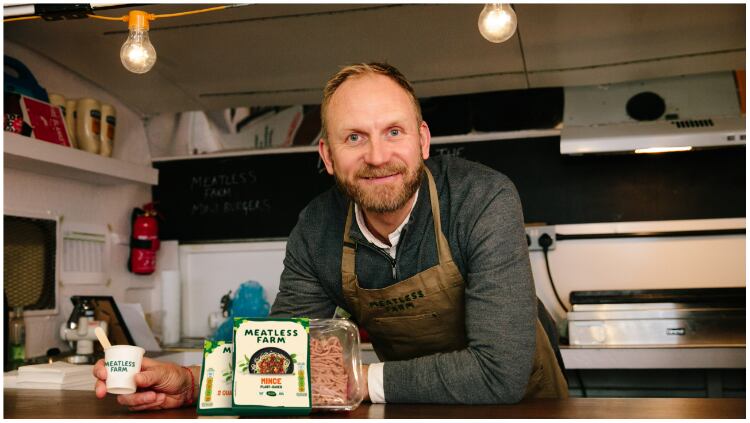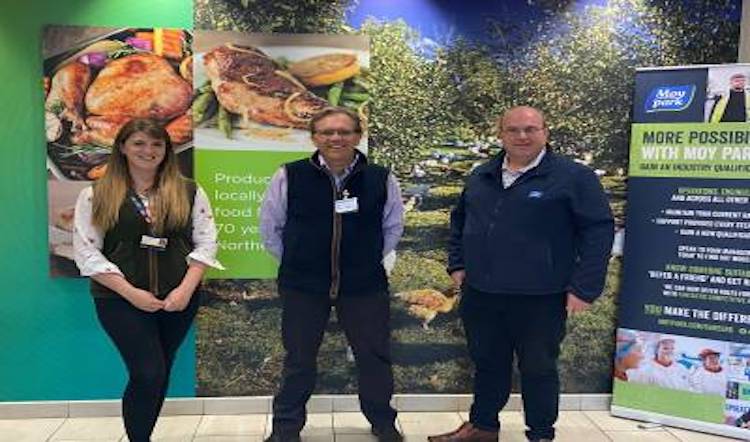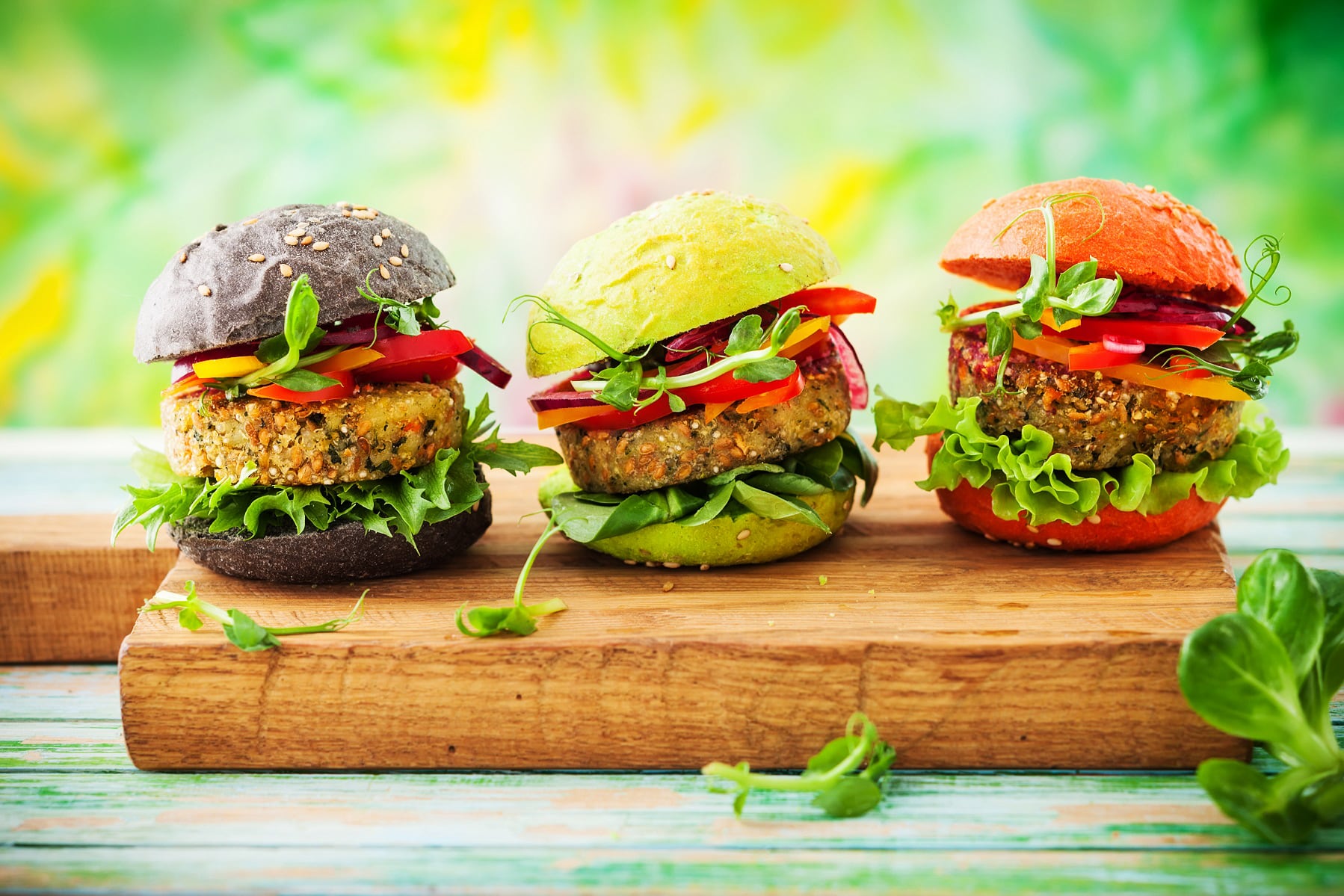Plant-based seafood
The UK plant-based market has been thriving, doubling in value from 2016 to 2020, reaching an approximate $1.6bn. Around the world, the appetite for plant-based has expanded rapidly over the last few years, and according to a report from the USDA, is predicted to continue growing by fivefold into the next decade.
Within this category, it’s anticipated that seafood alternatives will be one fastest growing (plant-based) sectors. The main drivers for this fishy market will mimic previous plant-based motivators, i.e. carbon emissions. It should also help reduce pressures on fish stocks globally, says Meatless Farm.
Meatless Farm’s CEO and founder, Morten Toft-Bech (pictured below) revealed that almost two-thirds of consumers are looking to eat “more sustainable alternatives to seafood” and this has inspired the launch of the company’s pea-derived tuna, which will be released in January 2023.
The new products will be available exclusively in food service trade before launching in retail later in the year.
Eco labelling
More brands will begin to include eco labels on their packaging due to a drive for greater transparency, Meatless Farm states.
Evaluating the entire supply chain of every ingredient and stage of production, from carbon emissions, water usage, water pollution and impact on biodiversity, eco-labelling aims to drive greater sustainable innovation among the largest food and drink brands.
It is also hoped that eco labelling will reduce the environmental impact of the food system, raising awareness of people’s broader carbon footprint. Organisations such as the Carbon Trust and Foundation Earth exist to help offer clarity in this regard.

Currently the challenge is creating a unified approach to this type of labelling. This is something Foundation Earth is trying to accomplish by working with experts such as Blonk and Deutsches Institut für Lebensmitteltechnik (DIL). Over the last year, the organisation has been running pilots with food industry partners to test different eco labelling methods.
It is set on developing a harmonised LCA (life cycle assessment) method – and label – that builds upon the EU’s Product Environmental Footprint (PEF) framework. According to Foundation Earth, even though the PEF methodology offers guidance on several LCA modelling issues, category rules haven’t been developed for all products. It also claims that the method used for these can sometimes be conflicting and therefore result in unfair comparisons.
Like Foundation Earth, the Carbon Trust is also working with companies so they can measure, manage and reduce their footprint. Among its labels, a brand can obtain certification for ‘reducing year-on-year’, ‘carbon neutrality’ and ‘lower than best-known products’.
“Two thirds of consumers support carbon labelling on products and Meatless Farm will introduce carbon labelling on all its core products from January 2023,” Toft-Bech said.
“The traffic light score will be on the front of each pack with a link to the full certificate on the back, helping to educate consumers across the UK.”
Fakeaways
Increased energy costs have already hit consumers and businesses hard, leaving over three quarters of adults in the UK worried about the rising cost of living, Meatless Farm said, citing data from ONS.
It’s unsurprising therefore that we’ve seen sales for energy efficient cooking appliances, such as air fryers, slow cookers and pressure cookers, go through the roof; and Meatless Farm predicts this will continue into 2023.
With this growth in popularity and the desire to save money, the company says it has seen the birth of the ‘fakeaway index’ – the modern-day equivalent of the ‘lipstick index’, which is the theory that sales of affordable luxuries rise in economic turndowns.
The fakeaway index shows the extent to which consumers are choosing to eat premium ready meals over meals out. As more consumers identify as vegan, vegetarian and flexitarian, demand for plant-based ready meals grows – as many as a quarter of consumers say they would like to see animal protein replaced with high-protein plant ingredients in ready meals.





